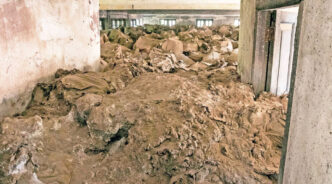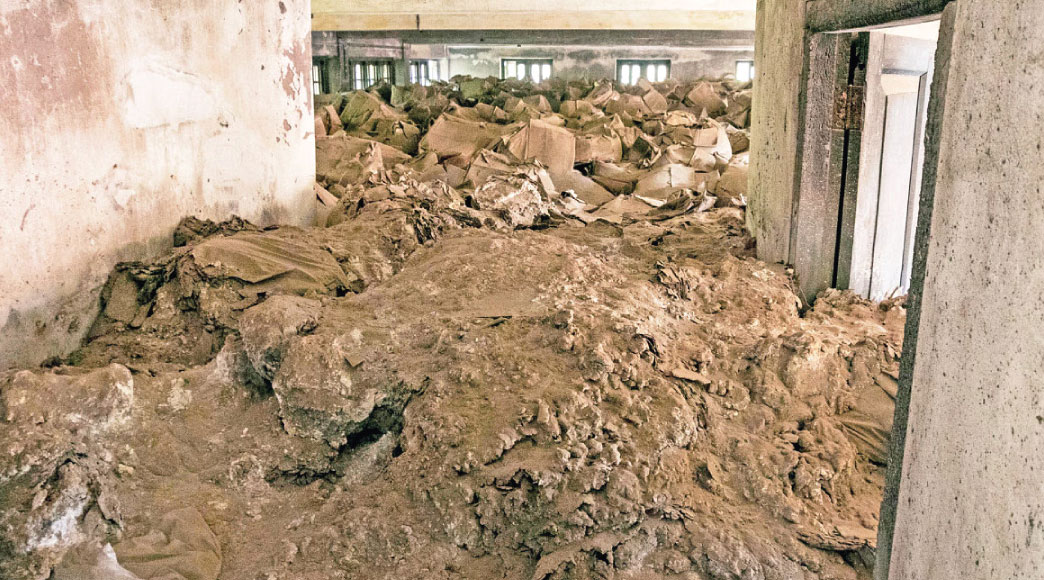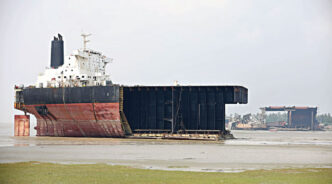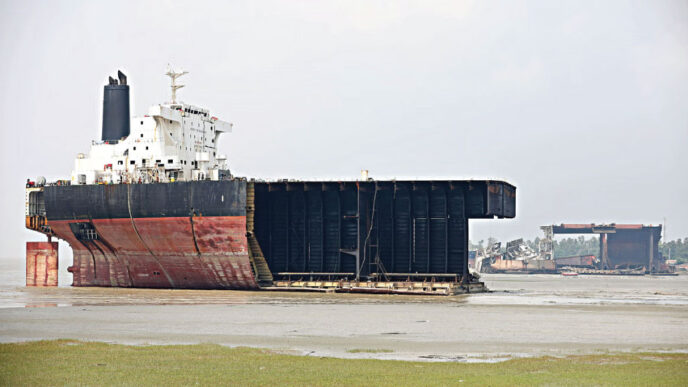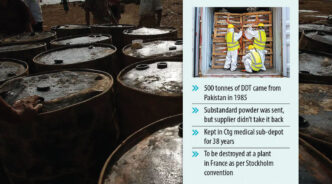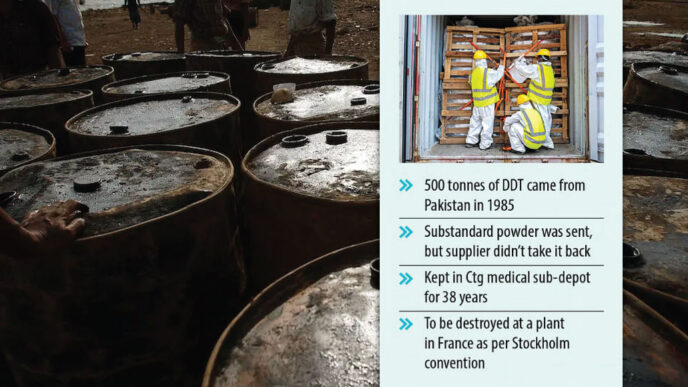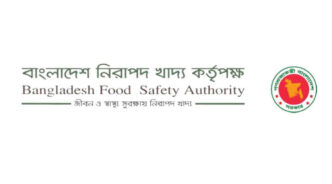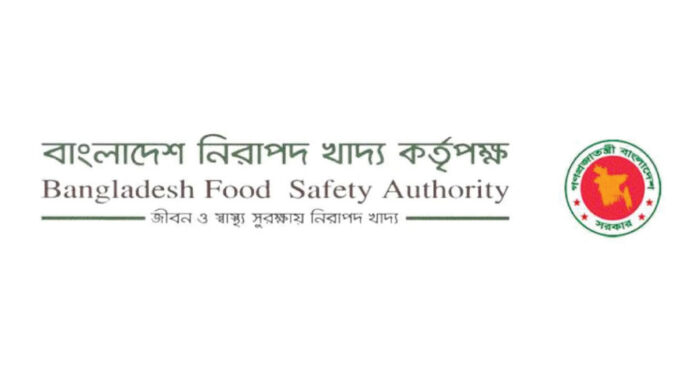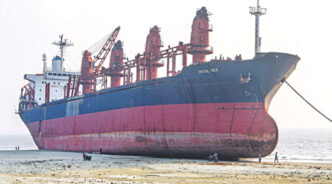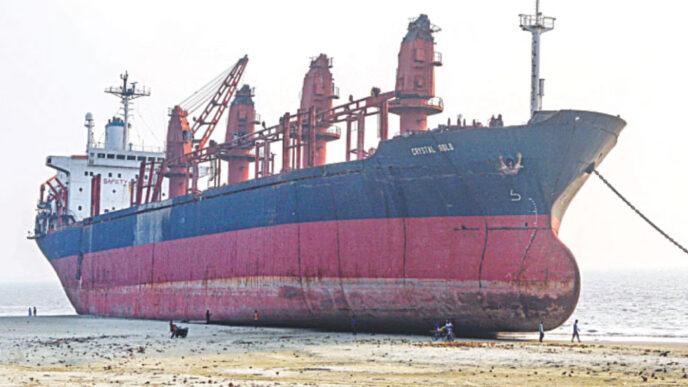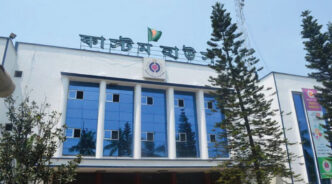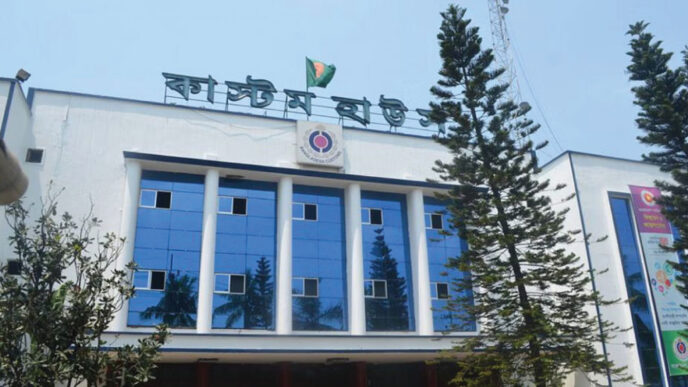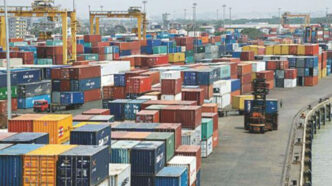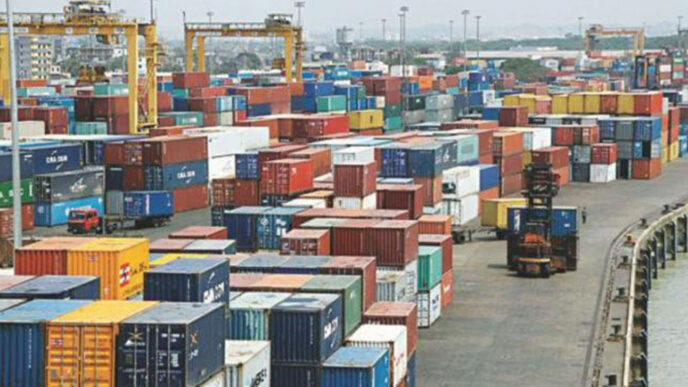An expert team yesterday started the process of shipping 500 tonnes of Dichloro-Diphenyl-Trichloroethane, a banned toxic pesticide, to France for destruction.
The pesticide had been stored at the Chattogram Government Medical Subdepot warehouse for 37 years.
The DDT, a persistent organic pollutant, which is extremely harmful to the environment and human health, was imported from Pakistan in 1985 for Tk 3.59 crore to control malaria in the country.
When a lab report said the pesticide was substandard, the Bangladesh government asked the Pakistani supplier — Exchange International Limited — to take back the pesticide, but it did not happen, according to the commerce ministry documents.
The issue was moved before a Pakistan court but nothing fruitful happened, say the documents.
Bangladesh banned the use of DDT in 1989.
Food and Agriculture Organisation coordinate the disposal and other activities which needs around Tk 70.09 crore.
Global Environment Facility is bearing the cost.
While visiting the subdepot in Agrabad yesterday, a 15-member team of Polyeco SA, a Greek company assigned to destroy the pesticide, was seen assessing the condition of the powder.
They said it would need four to five weeks to complete packing of the pesticide.
It will be destroyed at a plant in France following the Stockholm Convention on Persistent Organic Pollutants. Bangladesh has been a signatory to the Stockholm Convention on removal of POPs since 2001, sources said.
Farid Ahmed, national project director of Pesticide Risk Reduction in Bangladesh, told The Daily Star, “Exposure to DDT can cause serious health problems, including certain cancers, birth defects, dysfunctional immune and reproductive systems and greater susceptibility to disease.”
“The ship will use ports of 12 countries before reaching France from Chattogram port and approvals from the countries are mandatory for carrying the harmful material. Approvals from Morocco and Malaysia have not been received yet.”
“We are trying through the foreign affairs ministry and hopefully we will get the approvals soon,” he added.
The project official said the process of destroying the pesticide was very complex and time-consuming. Only a few countries have plants to destroy this harmful substance, he added.
In 2007, an initiative was taken to destroy the DDT under the Pesticide Risk Reduction Project in Bangladesh.
On November that year, a FAO team visited Bangladesh. The team visited again and met senior officials on March 2, 2015.
After the meeting, FAO Representative in Bangladesh Mike Robson promised to bear the pesticide destruction cost.
In mid-1984, the Bangladesh government inked an agreement with the Pakistan government to import 1,000 tonnes of DDT powder from Pakistan under the “Public Health Programme” project to control malaria in the country. A consignment of 500 tonnes arrived in 1985, according to the commerce ministry documents.

